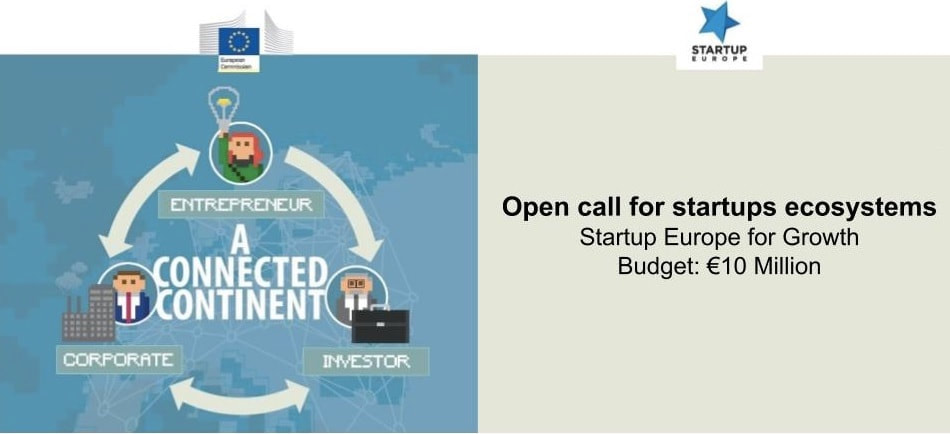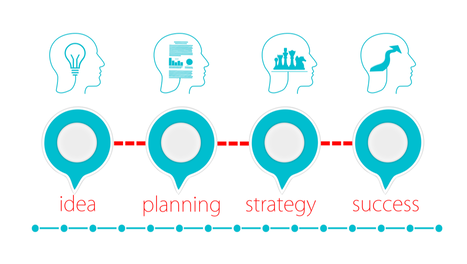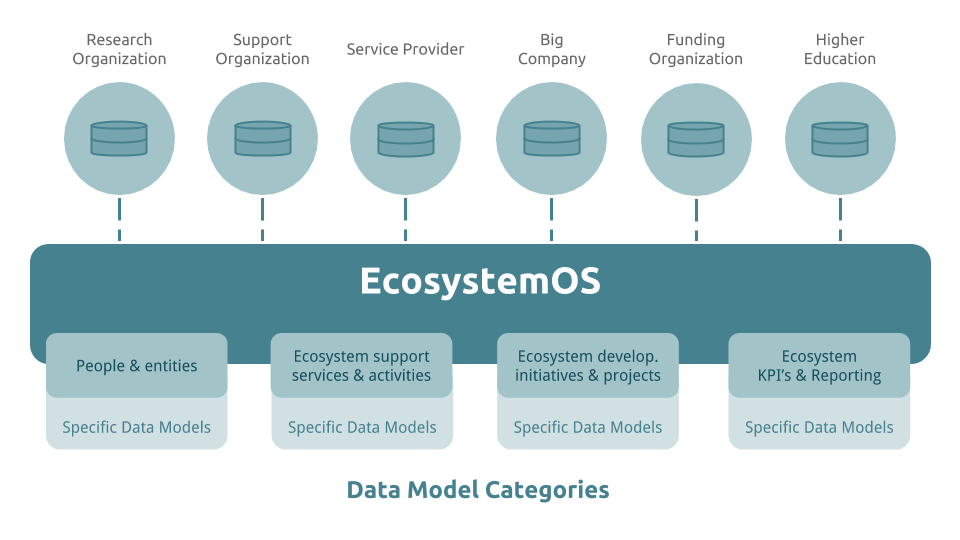|
The H2020 2018-2020 work programme recently launched a new call with application deadline 28 March 2019, aimed to:
A total budget of EUR 10 million will be distributed among ecosystems organizations who want to establish consortiums of 4-5 startups ecosystems across Europe per project, to apply together for a project for connecting activities between consortium ecosystems, with aim to building an ever closer Union of startups ecosystems. EU Commission is specially interested in organisations aiming at connecting local tech startup ecosystems supporting cross-border activities between EU ecosystems, where about half of each consortium should be located in less developed ecosystems and half from top 20 of the more developed ecosystems (on scale up index ranking). A consortium can also include international consortium member outside EU as long as it’s aligned with targets of the call to support European startups/scaleups to soft land and get access to new markets (not the other way around ie. startups to access EU). More about international aspect, see towards the end of this message. Each consortium project should look into developing:
Also additional focus will be placed on:
See also additional details from information and networking workshop organized by EC for potential applicants to the call where you will find more additional details and the official presentations related to it. The deadline for the call is 28 March 2019. Evaluation of applications Three main evaluation criteria are; excellence in form of being relevant to the topic of the call, impact, quality and efficiency of the implementation, including self sustainability (how things developed in the project can continued without support). See further evaluation criteria in more detail here. Developing a plan for a consortium project based on call details? Building one single digital entry point for your ecosystem, actively connecting between ecosystems and to Startup Europe in a self sustainable manner, is not as simple as manually collecting information from different sources and put it on a map or some application. Key points here are “actively” (should not be only manual) and “self sustainable manner” (how things developed in the project can continued without support). The more there is manual work involved the harder it is to make connections active and self sustaining. Also as one of the new key focuses on this call is deep tech, also solutions developed and build as part of the project itself, should naturally look into utilizing deep tech approaches. Combining, these mean how to get the information (data) flow more automatically and how to make that data into high quality. If these are considered, then there will also be opportunities towards more deep tech solutions to develop later, like use of AI. What could be a focus for a project to apply funding to? Permanently fix the ecosystem fragmentation problem and begin the digital transformation journey within and between ecosystems taking part in your consortium. In startup ecosystems, founders looking for cofounders, talent looking for ideas and support, investors looking to invest, companies looking for partners, lenders looking to provide working capital, corporates looking new innovations to existing problems and opportunities for their customers and markets. The list goes on and on. Everyone and anyone trying to find what they are looking for from startup ecosystems suffer from fragmented, limited and outdated information. So easy access and use of accurate key information (data) about the things they are looking to understand and about people and companies they are looking to connect and do business with is a key for everyone. As long as any given startup ecosystem develops and grows, it has to scale its own programs, services, activities, processes, projects, people and resources in general. This rapid pace of change is compelling to provide a more transparent vision of the ongoing developing and evolving ecosystem in order to communicate in effective way to all users in the ecosystem relevant information such as what is going on in the startup ecosystem, who are doing what and why, where and when are things happening or how different parties can "get in on it all". Additionally, there’s an important speed gap between and disconnectivity with the showcased information and ecosystem performance metrics (KPI’s) with the real startup ecosystem activity that generally becomes into outdated and inaccurate information for all user roles within the startup ecosystem, generating a lot of frustration to users and inefficiency at ecosystem level. When we have been evaluating the core problem, it’s not that the information would not exist or about missing or wrong applications per se, it’s often about manual and/or non sustainable strategy and solution that is applied in projects supporting an ecosystem to increase connectedness. We have validated this problem several times globally. Instead a solution needs to focus on an application connectivity framework and not just a manually populated portal approach, with an open standard ecosystem level data model and related data sharing practices. To establish a digital backbone to enable application level connectivity that can be built step by step and API connections to share data more automatically can be added one by one with smart architecture approach. This needs to be done in a way where during and after setup is in place and any individual connection created, each connected application and data owner can separately decide from their connectivity settings in the system, what data they want to share and under what terms also taking into account GDPR compliance for users to be able to make their data portable between applications without having dependency in any single application. In such setup, a startup ecosystem one stop shop can then be added “on top” to showcase all real-time information flowing within the system about ecosystem people, startups, events, support services, development projects and beyond. Also this type of setup enable software developers or managers of any application to enable connectivity from and to their application to all other existing ecosystem applications via single API gateway connection (instead of multiple different connections directly between multiple applications), and also to build totally new ecosystem applications based on data and connections within the system. If you need inspiration, please check out Startup Commons ecosystemOS model which is especially designed based on these global learnings. Making it self sustainable Another global key learning is that too many projects created are not designed to become sustainable beyond their initial project life. This leads to a lot of wasted efforts, resources and money. As well as to situations that many projects seem to be repeated, set up by different actors trying to fix a same problem, where often times repeating same things, facing same challenges and gaining same learnings. Also often unfortunately ending with same or similar outcome. Often time these types of unfortunate things are only visible for those who have been working with ecosystem developments for long enough time. Instead we believe there should concrete and more permanent results achieved, that any next new project could also leverage to develop further, instead of repeating projects with limited sustained benefits. As such, a key part of deploying such solution is that it needs to be designed to be sustainable, operated by and organization that is operating under local economic development policy makers and ecosystems key actors strong support and/or mandate (e.g. regional and municipal development agencies), corporations driving dedicated business vertical ecosystems internationally for innovation and key public & private startup support services that operate startup and entrepreneurship ecosystems and offer services to startups, investors, and other stakeholders. If dedicated ecosystem operator who's focused on ecosystem connectivity, systematic long term development and neutral orchestration does not currently exist in your ecosystem, this project is very well aligned for establishing such function, where learnings between consortium ecosystems can be accelerated during this project and related costs can be shared, not only between the EU funding but also between consortium members. As the whole core target is to build active connectivity and as such that also means building digital standards to be able to connect within and between ecosystems. Call to Action! At Startup Commons we strongly believe on research concluding ecosystem connectivity being the most important factor contributing for growth and since 2014 we have been part of projects trying to solve such challenges with digital solutions with 25+ ecosystems. Step by step building these learnings to build an unified network of ecosystems with a shared data platform and standards. Therefore, we couldn't be more pleased to see the European Commission focusing on this and launching this call to fund active connectivity solutions between ecosystems, with key focus on self sustainability and involving deep tech and digital innovation hubs included. Our hope is that this will encourage and contribute the creation of ecosystem operators role with a systematic step by step and data-driven development approach but with a long term sustainability and GDPR regulation in mind, to make services more automated and startups more visible, accessible and easy to reach international markets through digital means. For this to happen, ecosystem builders have to act now to get a deep understanding about what EU is requiring and to start establish consortiums and projects for plans that can be funded. Building a consortium, project plan and application For exploring different solutions and identifying potential partners Startup Commons want to support the efforts of any ecosystem wanting to establish an consortium and/or for existing consortium to find suitable ecosystem partners. You can join and announce your interest via our global startup ecosystem developers group on facebook, send us a message or simply email us. We will be more than happy to organise a video call session with you to explore and plan next steps towards building your own startup ecosystem one-stop shop to enable connectivity within the ecosystem and to support cross-border activities with other ecosystems. Other sources for you to look into:
In addition, those who seek our support, we will support in developing a project and application towards the call itself. As well as naturally communicate about the progress and learnings of all consortium projects we are involved with, to our global audience and networks. International Cooperation Guidelines Notes from the video about call presentation (in about 6 min: 40 sec)
See also:
Are you a consultant or an entrepreneur?
- Learn more about Growth Academy Online Training & Certification Programs Download our startup booklet and watch our videos to learn more about our framework to help startups to grow without "reinventing the wheel" and without wasting lot of time trying to connect the dots. The framework is based on the startup development phases and aims to remove the highest universal risks on the startup journey. |
Supporting startup ecosystem development, from entrepreneurship education, to consulting to digital infrastructure for connecting, measuring and international benchmarking.
Subscribe for updates
Startup ecosystem development updates with news, tips and case studies from cities around the world. Join Us?Are you interested to join our global venture to help develop startup ecosystems around the world?
Learn more... Archives
December 2023
Categories
All
|
- Startup Commons
- Business Creators
-
Support Providers
- About Support Providers
- Learn About Startup Ecosystem
- Startup Development Phases
- Providing Support Functions
- Innovation Entrepreneurship Education
- Innovation Entrepreneurship Curriculum
- Growth Academy eLearning Platform
- Certified Trainers
- Become Growth Academy Provider In Your Ecosystem
- Growth Academy Training On-Site By Startup Commons
-
Ecosystem Development
- About Ecosystem Developers
- What Is Startup Ecosystem
- Ecosystem Development
- Ecosystem Development Academy eLearning Platform
- Subscribe to Support Membership
- Ecosystem Operators
- Development Funding
- For Development Financiers
- Startup Ecosystem Maturity
- Case Studies
- Submit Marketplace App Challenge
- Become Ecosystem Operator
- Digital Transformation
- Contact Us
- Startup Commons
- Business Creators
-
Support Providers
- About Support Providers
- Learn About Startup Ecosystem
- Startup Development Phases
- Providing Support Functions
- Innovation Entrepreneurship Education
- Innovation Entrepreneurship Curriculum
- Growth Academy eLearning Platform
- Certified Trainers
- Become Growth Academy Provider In Your Ecosystem
- Growth Academy Training On-Site By Startup Commons
-
Ecosystem Development
- About Ecosystem Developers
- What Is Startup Ecosystem
- Ecosystem Development
- Ecosystem Development Academy eLearning Platform
- Subscribe to Support Membership
- Ecosystem Operators
- Development Funding
- For Development Financiers
- Startup Ecosystem Maturity
- Case Studies
- Submit Marketplace App Challenge
- Become Ecosystem Operator
- Digital Transformation
- Contact Us





 RSS Feed
RSS Feed

